
Aptech Africa Issue 2: 5% Bond
£52,000 | 60 | 0 |
 3.7 tonnes CO2 savings annually
3.7 tonnes CO2 savings annually
The new solar PV system will allow the UN FAO office in Brazzaville to meet most of its needs from solar generation Powering the UN FAO in Brazzaville
Powering the UN FAO in Brazzaville
The money raised will enable Aptech Africa to deliver a solar PV system with battery backup for the UN FAO office in Brazzaville
Reliable, low carbon electricity for the FAO in Brazzaville, Congo
Aptech Africa are installing a solar power station with battery storage, integrated to grid and generator backup, to deliver reliable electricity to the UN's Food and Agriculture Organization (FAO) office in Brazzaville. The system is designed to meet 71% of electricity consumption from the new solar PV system.
This project will bring reliable, low carbon electricity to the UN FAO, replacing reliance on a diesel generator and an unreliable grid that sees power outages of 3-6 hours per week. This project is funded by the UN Development Program.
About Aptech Africa
Key product information
Issuer: Aptech Africa Ltd
Issuing Country: Uganda
Investment target: £52,000
Minimum investment: £50
Maximum investment: No maximum
Maturity: 6 months
Expected interest rate: 5% per annum
Withholding tax rate: 15% (applicable to UK residents who do not invest within an IF ISA)
Interest payment frequency: 6 months
Capital repayment: 6 months
Financial instrument: Secured interest bearing bond
Security: Secured
Key risks
This is a bond issued by a single company (rather than a saving product) and therefore it is recommended that you are careful with the amount you invest.
You must read the offer document (provided below) where a statement of risks is presented, particularly in section 5 – Risk Analysis Overview
Documents
See what Aptech Africa do
Aptech Africa are one of the pioneering companies supported by the Energise Africa initiative, a joint venture between Lendahand and Ethex.
What the project investment will enable
Money invested in this project will enable Aptech Africa to supply a hybrid solar PV system for the UN Food and Agriculture Organization (FAO) office in Brazzaville.
Aptech will install a 15 kWp solar PV system with a 34kWh battery that will serve as the primary source of energy for the FAO building. The system will be backed up with grid electricity, and if that fails, with a diesel generator. The generator will also charge the batteries when it operates, to minimise the amount of time that it needs to be used. This hybrid system is projected to be able to provide 71% of the electricity consumption from solar power. In addition it will provide reliable power as grid outages are frequent.
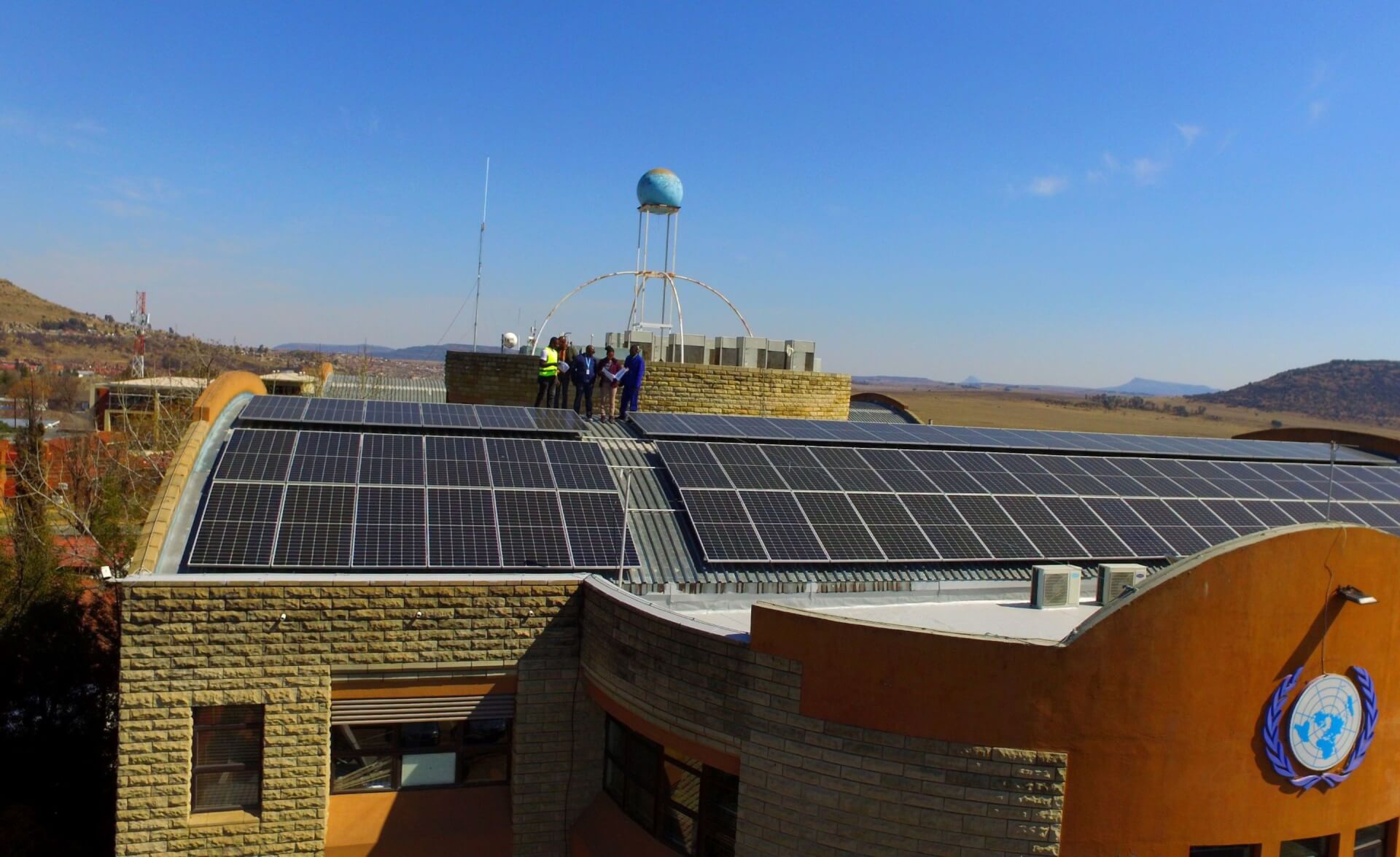
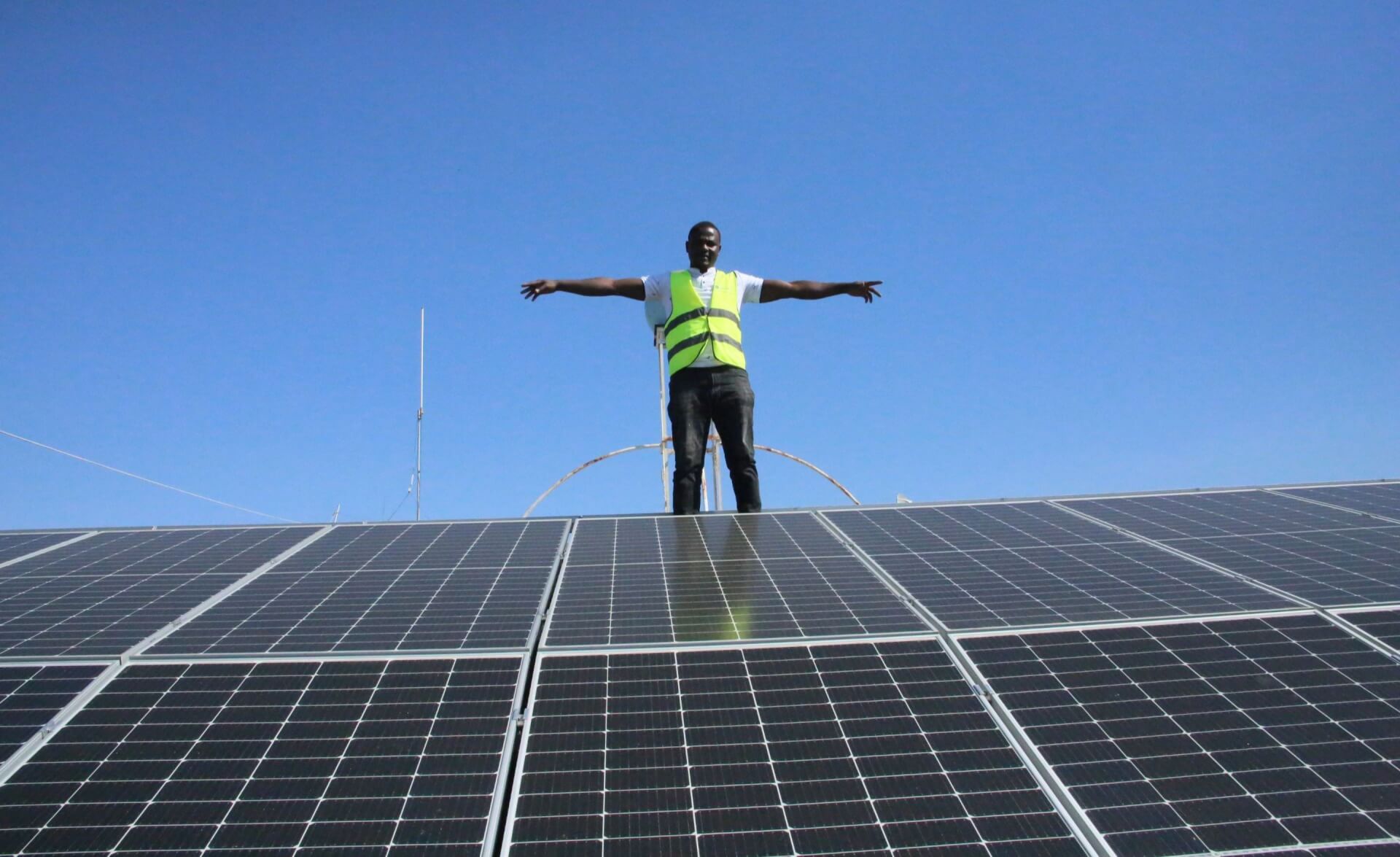
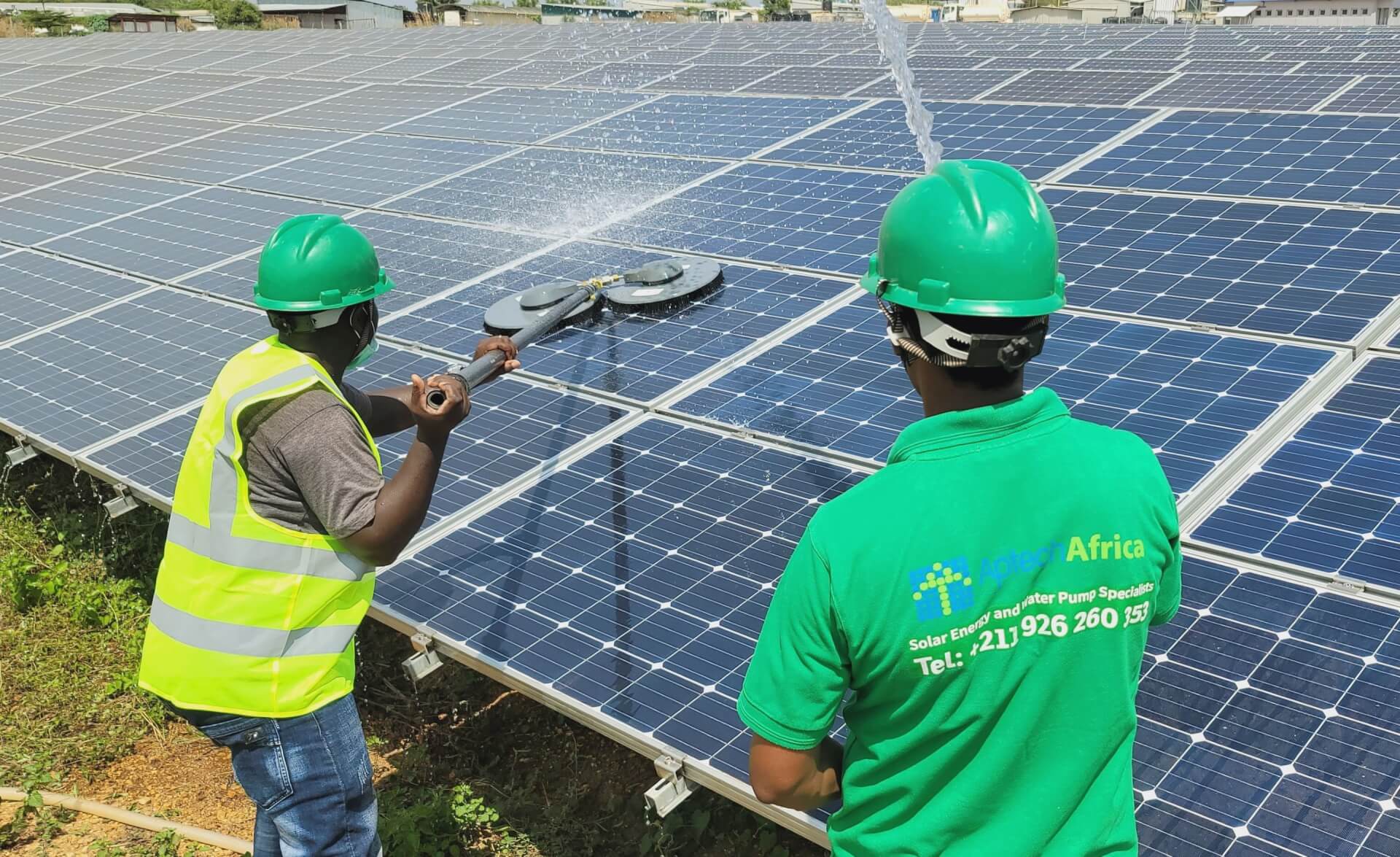
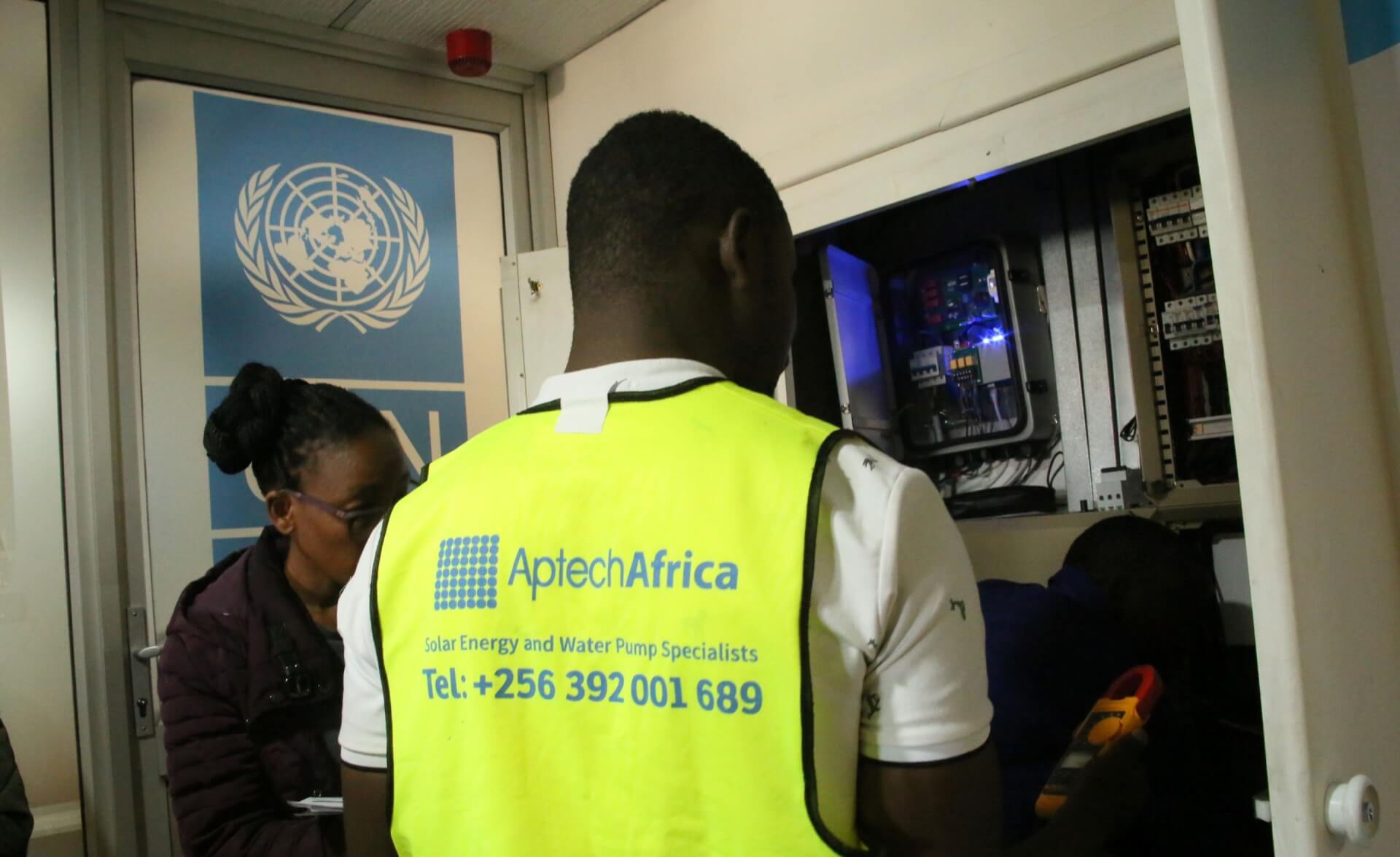
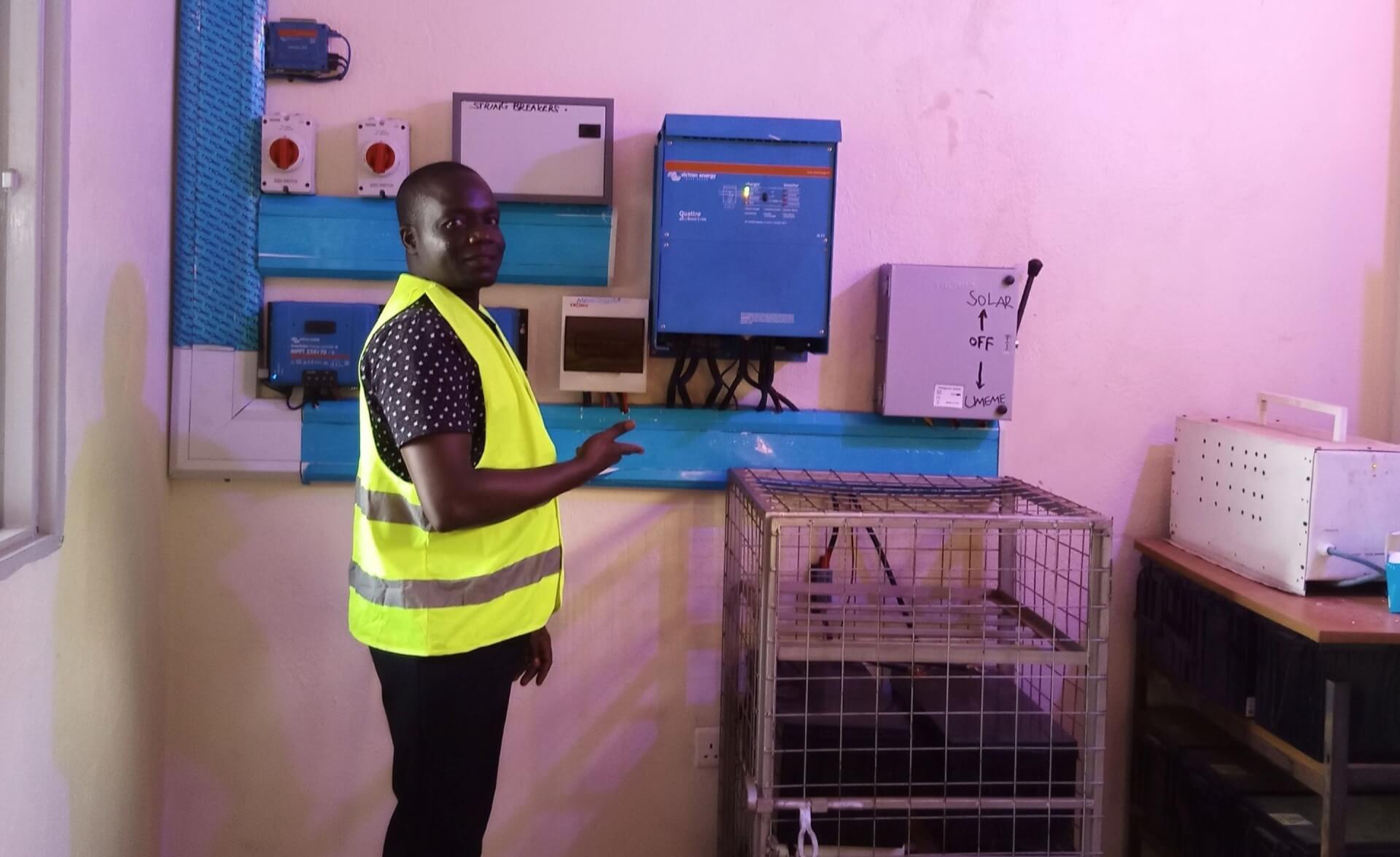
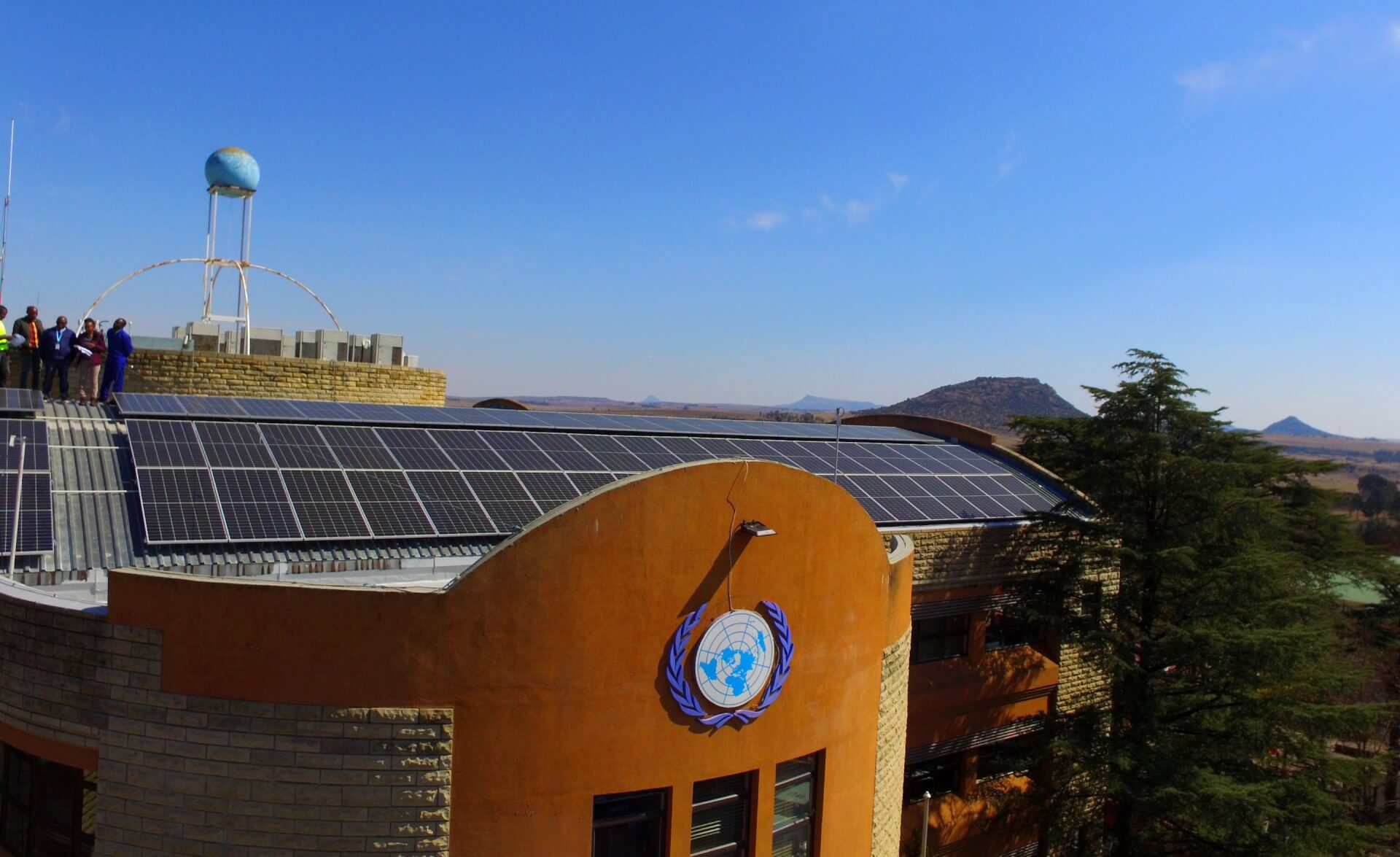
Aptech Africa
The company aims to raise £52,000 from this bond issue and will use the funds to deliver a solar hybrid power system for the UN FAO's office in Brazzaville, Congo.
Aptech Africa Ltd is a solar energy and water pump specialist, delivering systems from assessment and design, through supply and installation, to after sales support. They work with UN Agencies, NGOs, commercial and individual clients. Aptech Africa are based in Uganda and are active in Uganda, South Sudan, Central African Republic, Eritrea, Liberia, Sierra Leone, Democratic Republic of Congo, the Republic of Congo, and Niger.
Social and environmental impact
This project will build a hybrid solar PV system to supply reliable electricity to the FAO office in the Republic of Congo, whilst also reducing carbon emissions. It allows the UN FAO to achieve it's development goals whilst demonstrating low carbon solutions.

Social Impact
The UN FAO Republic of Congo provides development support interventions, including in the areas of sustainable agriculture, effective forest management, combating the effects of climate change and emergencies.
Fight hunger
Supporting FAO operations in the Republic of Congo
Showcase
The system will be used as a technology showcase to inspire local and regional adoption of solar systems
3-6 hours per week
regular grid outages that the system will protect against

Environmental Impact
Going solar will reduce the FAO Republic of Congo's carbon footprint and burden on the environment
71 %
electricity consumption expected to come from solar
3.7 tonnes
CO2 emissions avoided every year
15 kWp
solar installation with battery back up